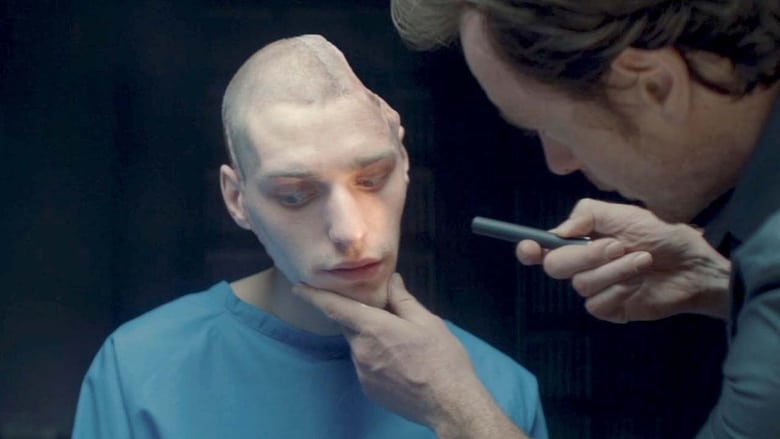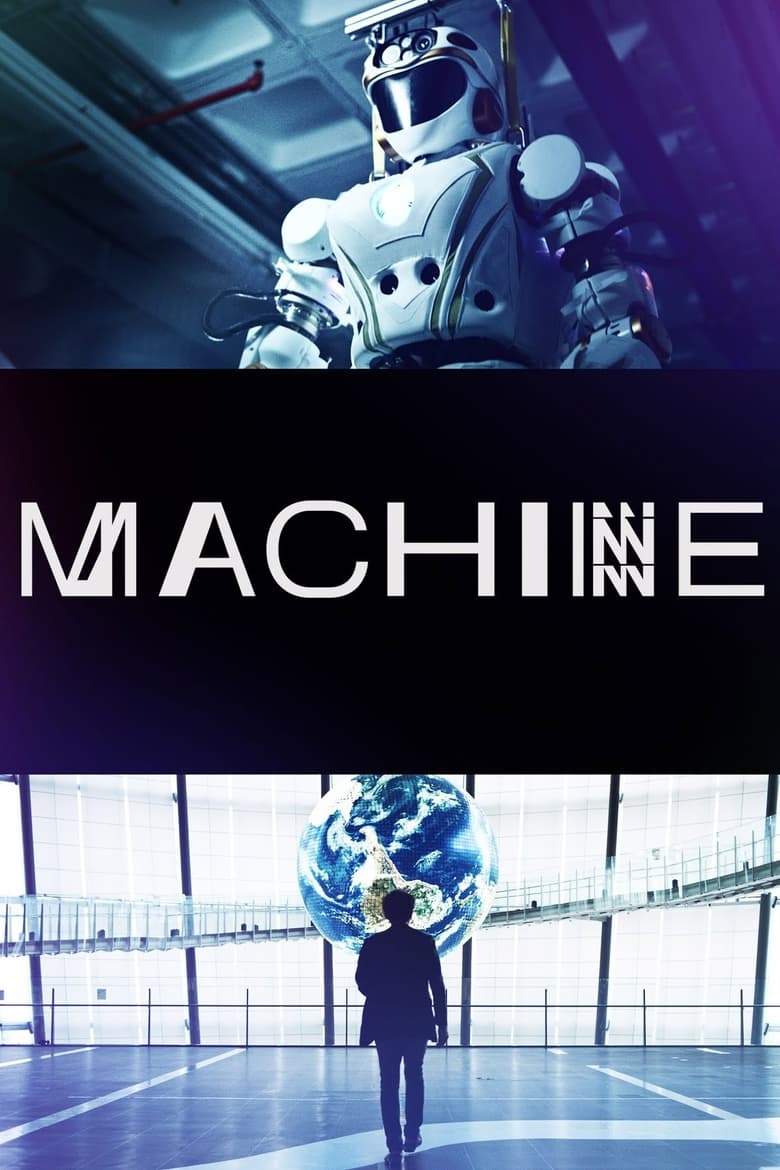Loading


Machine
Genres
Documentary
Overview
If machines can be smarter than people, is humanity really anything special?
Details
Budget
$0
Revenue
$0
Runtime
86 min
Release Date
2019-12-12
Status
Released
Original Language
English
Vote Count
2
Vote Average
6.5
Cast
Meet the talented actors who bring the movie to life.
Tim Urban
Self
Eugenia Kuyda
Self
Kate Darling
Self
Hiroshi Isiguro
Self
Matt McMullen
Self
Pablos Holman
Self
Rodney Brooks
Self
D. Scott Phoenix
Self
Toby Walsh
Self
Iyad Rahwan
Self
Miklos Kiss
Self
Marc Lichte
Self
Mark Little
Self
Pindar van Arman
Self
Nick Bostrom
Self
Yukiyasu Kamitani
Self
Dr Eric Leuthardt
Self
Similar Movies
Explore movies similar to this one that you might also enjoy.
4.0
AI and the Future of Us: An Oprah Winfrey Special
Oprah Winfrey explores the profound impact of artificial intelligence on people's daily lives, demystifies the technology and empowers viewers to understand and navigate the rapidly evolving AI future.
2024-09-12 | en
6.1
Games on Reflection and Speed
A high-speed view of Paris via train-track; Zooming down the Seine by boat. Chomette's first film, Games of Reflections and Speed, traverses tunnels and elevated railways to produce a disarming rhythm.
1925-01-01 | fr
0.0
Women of Science
Meet six women of power: scientific researchers, technological leaders, mathematical or engineering geniuses. In this film, they reveal themselves: they share their journey, showcase their groundbreaking work and reveal the obstacles they have overcome as girls and women in science, technology, engineering and mathematics. In celebrating these contemporary pioneers, we are also highlighting a dark truth. Throughout history, women scientists have been silenced, their contributions relegated to the shadows. Will this generation rewrite the rules and create a new legacy?
2024-02-08 | fr
8.0
The Disruptors
ADHD is one of the most commonly diagnosed-and widely misunderstood-neurological conditions in the world today, affecting nearly 10% of kids and a rising number of adults. But what if having an ADHD brain is actually an asset? A growing number of innovators, entrepreneurs, CEO's, Olympic athletes, and award-winning artists have gone public about their diagnosis, saying that their ADHD, managed effectively, has played a vital role in their success. The Disruptors hears from many of those game-changing people speaking candidly about their ADHD, and intimately takes viewers inside a number of families as they navigate the challenges, and the surprising triumphs, of living with ADHD. The Disruptors takes an immersive look at our approach to ADHD that debunks the most harmful myths, and examines the flip side of this trait that ultimately offers a revelatory understanding of the diagnosis, and real hope for millions of kids, families and adults with ADHD.
2022-05-12 | en
0.0
Close-Up on Planets
Computer animation and footage from NASA space missions explain how our solar system evolved and the place Earth has within the system.
1982-09-28 | en
7.9
Bread
A unique project, the popular science series "Bread" is shooting around the world, interviews with scientists and world-class experts. There are 4 series in the project: "Immortality", "Money", "Hunger" and "Gene". This is a story about how bread controlled the destinies of continents and empires, how the rise of some civilizations and the fall of others depended on it, how in different countries and at different times it performed the function of money. This is the first time such a complete study of bread and grain is being carried out on a television screen. The focus is on the most interesting events in the history of Russia, Italy, France, Germany, England, China, Egypt and other countries.
2014-03-01 | ru
0.0
Bread. Gene
Each grain crop - wheat, rye, rice and corn - has been "creating" a special type of person for centuries. For example, rye formed the Slavic culture, wheat influenced the inhabitants of almost all of Central Europe and a significant part of Asia, corn formed the inhabitants from Mexico to Nicaragua, and rice - representatives of Japan, India and China. Today, genetic engineers are trying to create the bread of the future. It is likely that after some time we will have three-dimensional food printers in our kitchens that will be able to "print" buns, loaves or confectionery. However, scientists are convinced that only part of the components for the "printer" will be chemical, and the rest of the components will continue to be grown on earth. At the same time, some researchers believe that genetic engineering may turn out to be a "Pandora's box", while others are sure that they can no longer do without it.
2014-04-07 | ru
5.5
Atomic Hope: Inside the Pro-Nuclear Movement
Is nuclear energy the solution to the climate crisis? Whether it is the only carbon-neutral technology capable of tackling the crisis or a fatally convenient stopgap, time is running out.
2023-02-17 | en
0.0
Dinosaurs: A Story of Survival
Like almost all children, Celeste is fascinated by dinosaurs. She is preparing a talk for her class about how they went extinct when Moon, a very wise and magical character, poses a tantalizing question: What if I told you that there are still dinosaurs among us? Celeste will join Moon on a journey through time, an exciting adventure that will show them the Earth as it was in the very, very distant past. They will see the fascinating transformations that these animals underwent over millions of years, creating giant creatures, armored beasts, and super-predators, until the day that a cataclysmic impact event caused a mass extinction on Earth. But all is not lost. Celeste will discover the key to their survival.
2022-04-01 | en
4.0
The A.rtI.st And The Filmmaker
For fear of being replaced by an artificial intelligence, a filmmaker explores the creative limits of such technology; that leads him into a loop of existential questions and philosophical reflections on art and its relationship to the origin of existence.
| en
0.0
El negocio del ADN
2025-03-27 | es
6.8
Movies by Machine - AI and Cinema
As artificial intelligence becomes ever more sophisticated, the film industry is split between enthusiasm at what the technology can achieve and concern over the future for human workers in the industry. Will actors and actresses be replaced by machines? An overview on the coming wave of AI in cinema.
2024-09-25 | de
6.5
Lo and Behold: Reveries of the Connected World
Werner Herzog's exploration of the Internet and the connected world.
2016-03-04 | en
9.0
Takumi: A 60,000 Hour Story on the Survival of Human Craft
There is a popular theory that it takes at least 10,000 hours of focused practice for a human to become expert in any field. In Japan, there are craftspeople who go far beyond this to reach a special kind of mastery. These people are called Takumi and they devote 60,000 hours to their craft. That's 8 hours a day, 240 days a year, for over 30 years. It's an almost superhuman level of dedication to a life of repetition and no shortcuts. This film asks the question: Will human craft disappear as artificial intelligence reaches beyond our limits?
2019-03-19 | en
0.0
Origins of consciousness
Experimental meditation on land, consciousness, and artificial intelligence. Shot in the Okanagan and West Kootenays. Original music by Jack Brintnell.
2023-06-02 | en
10.0
Is Genesis History? Mountains After the Flood
In this fascinating sequel to "Is Genesis History?", watch a team of scientists discover new evidence for the global Flood. By the time the journey is over, you'll understand exactly how modern science connects to the book of Genesis.
2023-09-05 | en
0.0
Ancient Origins: Artifacts and Anomalies
Archaeologists generally regard Mesopotamia as "the beginning of civilization" but shocking new evidence that defies comprehension clearly suggests that highly advanced civilizations existed in pre-history. With new advanced technology, archaeologists are now able to image undiscovered worlds before our own from above. The truth to mankind's true origins is being rapidly revealed to be very different than what we've been told.
| en
5.0
Is Anybody Out There?
The recent discovery by the Kepler satellite of thousands of Earth-like planets where life could be possible, has given a big boost to the Search for Extraterrestrial Intelligence (SETI). In 2011, for the first time ever, Kepler provided us with a census of the Milky Way. We can now calculate how many stars in the Milky Way could have a planet like ours: around a billion.
2015-01-01 | en
6.3
Eternal You
Startups are using AI to create avatars that allow relatives to talk with their loved ones after they have died. An exploration of a profound human desire and the consequences of turning the dream of immortality into a product.
2024-06-20 | en
0.0
Love Machina
Futurists Martine and Bina Rothblatt commission an advanced humanoid AI named Bina48 to transfer Bina’s consciousness from a human to a robot in an attempt to continue their once-in-a-galaxy love affair for the rest of time.
2024-01-19 | en